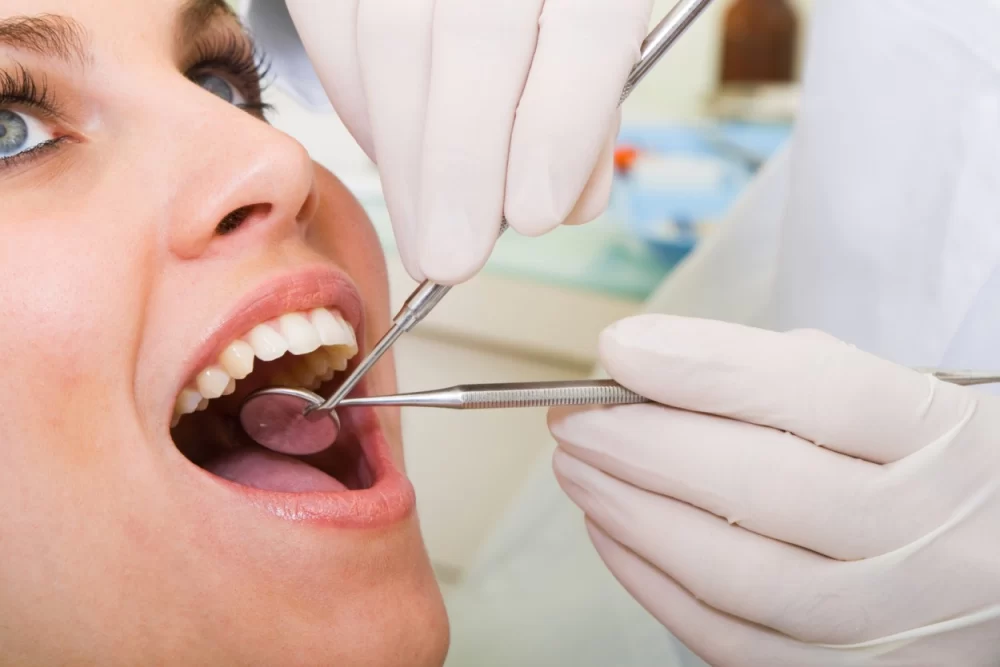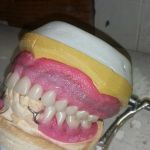
How to Take Care of Your Teeth and Gums in Your 30s: Essential Tips for a Healthy Smile
- 1. Why Dental Health Matters in Your 30s
- 2. Key Oral Care Routine for Your 30s
- 3. Common Dental Issues in Your 30s and How to Avoid Them
- 4. The Impact of Diet on Your Teeth and Gums
- 5. The Importance of Professional Dental Checkups
- 6. Improving Your Dental Habits for Long-Term Health
1. Why Dental Health Matters in Your 30s
Your 30s are a crucial decade for maintaining strong, healthy teeth and gums. During this period, many individuals start noticing changes in their oral health, such as increased sensitivity, gum recession, or the occasional cavity. Understanding the importance of dental health at this stage will help you take proactive steps to preserve your smile for years to come.
Preventing issues like gum disease and cavities in your 30s is much easier than treating them later in life. Dental problems can also impact your overall health, leading to conditions such as heart disease and diabetes. Therefore, taking care of your teeth and gums now can save you time, money, and discomfort in the future.
2. Key Oral Care Routine for Your 30s
A well-rounded oral care routine is vital to maintaining a healthy mouth. Here’s a step-by-step guide on how to properly care for your teeth and gums:
- Brush twice a day: Use fluoride toothpaste and a soft-bristled toothbrush to brush your teeth for at least two minutes, focusing on all surfaces.
- Floss daily: Flossing removes plaque and food particles between your teeth that your toothbrush can't reach, helping to prevent gum disease.
- Use mouthwash: An antimicrobial mouthwash can help reduce bacteria, freshen your breath, and prevent plaque buildup.
- Replace your toothbrush regularly: A worn-out toothbrush won’t clean your teeth effectively, so change it every 3-4 months or sooner if the bristles are frayed.
3. Common Dental Issues in Your 30s and How to Avoid Them
As you enter your 30s, several dental issues may start to surface. The good news is that many of these issues can be prevented with proper care.
- Gum Recession: Gum recession can be a common issue in your 30s, often caused by brushing too aggressively or poor oral hygiene. To prevent gum recession, use a soft toothbrush and gentle brushing motions.
- Tooth Sensitivity: As gums recede, the roots of teeth may become exposed, leading to sensitivity. If you experience sensitivity, consider using toothpaste designed for sensitive teeth.
- Cavities: Cavities can occur even in adulthood. Regular brushing, flossing, and visits to your dentist can help prevent decay and keep your teeth strong.
4. The Impact of Diet on Your Teeth and Gums
Your diet plays a significant role in your dental health. Consuming sugary or acidic foods can promote plaque buildup and tooth decay. To maintain healthy teeth, incorporate the following into your diet:
- Calcium-rich foods: Dairy products, leafy greens, and fortified foods help strengthen your teeth.
- Water: Drinking water throughout the day helps wash away food particles and neutralizes acids.
- Avoid sugary snacks: Reducing sugary snacks can help prevent cavities and plaque buildup.
5. The Importance of Professional Dental Checkups
While home care is essential, professional dental checkups are equally important. Dentists can spot issues early, provide cleanings, and offer treatments that prevent long-term problems.
Schedule regular dental checkups every six months. Regular cleanings remove plaque and tartar buildup, preventing gum disease and cavities. Your dentist can also offer personalized advice based on your unique oral health needs.
6. Improving Your Dental Habits for Long-Term Health
Building and maintaining good dental habits now will help you preserve your smile into your 40s and beyond. Consider the following tips for improving your habits:
- Consistency is key: Stick to your oral care routine every day without skipping brushing or flossing.
- Don’t skip dental checkups: Regular visits to the dentist ensure you catch problems early and keep your teeth in top shape.
- Use products that benefit your teeth: Consider using fluoride toothpaste and mouthwashes that strengthen enamel and promote gum health.







 Wilshire Periodontics & Dental5.0 (2 review)
Wilshire Periodontics & Dental5.0 (2 review) Classic Dental Laboratory0.0 (0 review)
Classic Dental Laboratory0.0 (0 review) Lakeview Dental PC4.0 (29 review)
Lakeview Dental PC4.0 (29 review) Grafton Dental Care4.0 (152 review)
Grafton Dental Care4.0 (152 review) Dental Health Associates - Sun Prairie Clinic4.0 (622 review)
Dental Health Associates - Sun Prairie Clinic4.0 (622 review) Honey Creek Dental4.0 (58 review)
Honey Creek Dental4.0 (58 review) The Importance of Oral Health Education During Pregnancy for a Healthy Pregnancy
The Importance of Oral Health Education During Pregnancy for a Healthy Pregnancy Best Tips for Brushing Your Teeth Properly for Healthy Gums: Essential Techniques for Oral Health
Best Tips for Brushing Your Teeth Properly for Healthy Gums: Essential Techniques for Oral Health Why Skipping Dental Checkups Can Lead to Bigger Oral Health Problems
Why Skipping Dental Checkups Can Lead to Bigger Oral Health Problems Advantages of Porcelain Dental Restorations
Advantages of Porcelain Dental Restorations How Can Diabetes Cause Tooth and Gum Problems? Preventing and Managing Oral Health Issues
How Can Diabetes Cause Tooth and Gum Problems? Preventing and Managing Oral Health Issues Healthy Habits for Promoting Good Oral Health and Hygiene: Tips for a Healthy Smile
Healthy Habits for Promoting Good Oral Health and Hygiene: Tips for a Healthy Smile